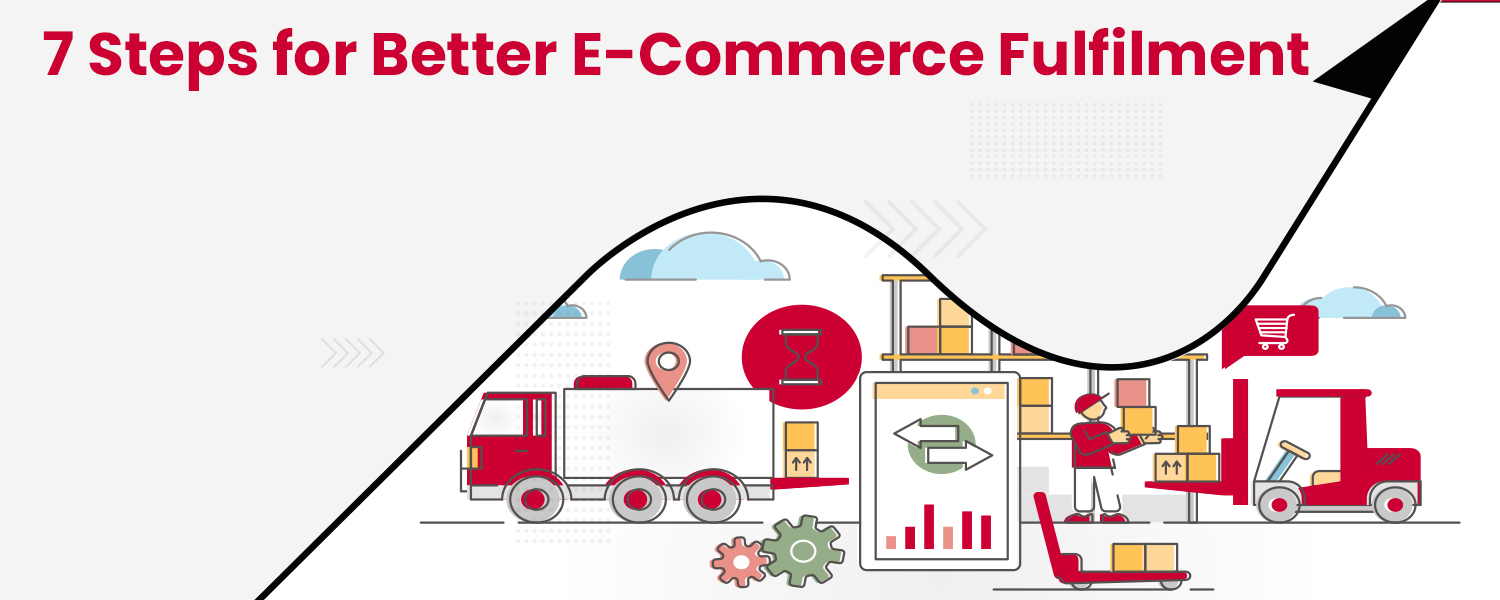Top Patterns in Ecommerce Fulfilment: What You Need to Know for 2024
As we shift right into 2024, ecommerce fulfillment is poised for a series of crucial adjustments that organizations need to think about to stay affordable. Furthermore, the demand for personalized client experiences is increasing, sustained by innovative data analytics. Understanding these fads is necessary, yet the ramifications for each firm may vary substantially.
Automation and AI Assimilation
Leveraging automation and expert system (AI) is coming to be increasingly critical for ecommerce fulfillment in 2024. As consumer expectations remain to develop, businesses need to adopt sophisticated modern technologies to simplify operations, reduce prices, and boost client fulfillment. Automation tools, such as robotic procedure automation (RPA) and independent lorries, are changing warehousing and logistics processes, enabling faster and extra exact order satisfaction.
AI integration plays an essential duty popular forecasting, supply monitoring, and customized customer experiences. By assessing huge quantities of information, AI algorithms can forecast acquiring trends, permitting firms to maximize supply degrees and lessen excess or lacks. Digital assistants and ai-driven chatbots are transforming client solution, offering instantaneous support and improving involvement.
The merging of automation and AI not just boosts operational efficiency but also enables organizations to range swiftly in the competitive ecommerce landscape. Companies embracing these modern technologies will certainly be well-positioned to meet the rising need for reliable and quick shipment solutions while keeping operational dexterity. As we move right into 2024, the focus on automation and AI combination will be essential for ecommerce satisfaction approaches, shaping the future of the sector.
Sustainability in Fulfillment Procedures
Sustainability in satisfaction operations is arising as a top priority for ecommerce services in 2024, driven by raising customer recognition and regulatory pressures. As ecological issues rise, firms are reevaluating their supply chains and logistics methods to decrease their carbon footprints and improve sustainability.
One key focus area is the decrease of product packaging waste. Services are adopting biodegradable products and optimizing packaging sizes to decrease excess. Furthermore, the shift in the direction of eco-friendly transport approaches, such as electric automobiles and boosted path optimization, is acquiring traction. These initiatives not just decrease discharges however can also cause cost savings.

Buying sustainable energy resources for storage facilities and warehouse is another important action. Business are progressively integrating photovoltaic panels and energy-efficient systems to decrease their dependence on nonrenewable fuel sources.
Customization and Client Experience

To efficiently execute personalization strategies, businesses must leverage consumer information properly and transparently. Comprehending customer trips permits business to anticipate needs and supply prompt, relevant content throughout different touchpoints. This not only increases consumer contentment however likewise fosters brand name loyalty.
Moreover, boosting the general customer experience is crucial. Simplifying the buying process, boosting site usability, and offering remarkable customer support are essential parts. Companies that focus on seamless communications, from searching to post-purchase assistance, will stand out in a competitive landscape.

Same-Day and On-Demand Distribution
Satisfying the growing customer demand for immediacy, on-demand and same-day delivery solutions are ending up being essential elements of ecommerce logistics in 2024. As consumers significantly expect rapid and flexible delivery options, organizations should adjust their fulfillment approaches to meet these assumptions.
Same-day delivery, when a costs service, is currently being offered by a vast array of sellers, from huge corporations to regional businesses. This shift is driven by innovations in technology and logistics, allowing stores to optimize their supply chains and minimize distribution times. On-demand delivery, which enables customers to receive products at their comfort, is additionally gaining traction, especially in city areas where web traffic and range can prevent traditional shipping techniques.
To efficiently apply these services, companies should purchase durable framework, consisting of efficient storage facility administration and real-time radar. In addition, collaborations with neighborhood courier services and delivery platforms can help improve logistics. As competition heightens, companies that focus on same-day and on-demand distribution will not only improve consumer contentment but likewise distinguish themselves in a congested market. Accepting these patterns is vital for ecommerce services intending next page to prosper in 2024 and beyond.
Advanced Inventory Monitoring Strategies
Leveraging sophisticated inventory management strategies is coming to be progressively important for ecommerce businesses pursuing operational efficiency in 2024. As the landscape advances, business must take on advanced systems to optimize supply levels, reduce bring costs, and boost client satisfaction.
Executing just-in-time (JIT) supply practices permits businesses to lessen excess stock and align their supply with actual demand (Ecommerce Fulfilment). Paired with predictive analytics, business can anticipate trends and make data-driven decisions, making certain that products are offered when required without overstocking
Moreover, the combination of automated supply monitoring software can enhance procedures, reduce human error, and supply real-time presence into stock levels throughout numerous networks. This technology allows services to react promptly to fluctuations in demand and preserve smooth procedures.
Multi-location supply monitoring strategies also play a vital duty in boosting fulfillment performance. By strategically dispersing supply throughout different gratification facilities, firms can you could check here lower delivery times and prices while boosting solution degrees.
Inevitably, understanding innovative supply monitoring strategies will certainly be necessary for ecommerce organizations intending to prosper in the affordable market of 2024, ensuring they satisfy customer expectations while maintaining profitability.
Verdict
To conclude, the landscape of ecommerce gratification in 2024 is positioned for transformative improvements. The combination of automation and expert system, coupled with a solid focus on sustainability, will redefine operational performance (Ecommerce Fulfilment). Furthermore, prioritizing personalized consumer experiences and resolving the expanding demand for on-demand and same-day distribution will be essential for success. Implementing innovative stock management strategies will further boost satisfaction strategies, making certain that services remain affordable in a progressively dynamic market atmosphere.
As consumer assumptions continue to progress, businesses need to adopt sophisticated modern technologies to streamline procedures, reduce expenses, and boost customer fulfillment.As ecommerce businesses aim to boost their sustainability efforts, they are likewise concentrating on personalization and client experience as vital drivers of success in 2024.To successfully apply personalization methods, organizations must take advantage of consumer information responsibly and transparently. Comprehending client trips permits companies to expect requirements and supply prompt, relevant content across different touchpoints. As competitors escalates, organizations that prioritize same-day and on-demand delivery will not just boost customer fulfillment yet additionally description distinguish themselves in a jampacked marketplace.